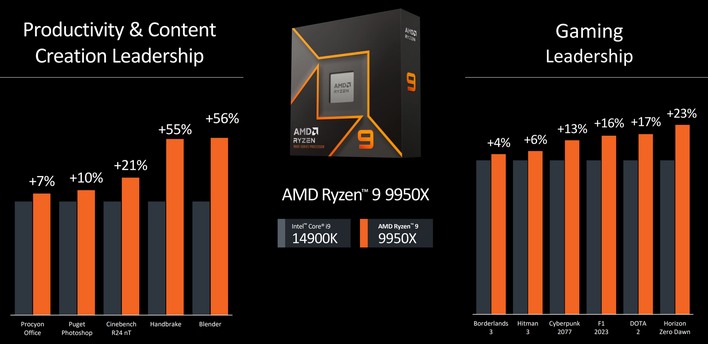AMD Explained Zen 5 Ryzen 9000 Benchmark Discrepancies, So We Tested It
In an effort to salve the psyches of sore community members, AMD has just put out a blog post titled "Ryzen 9000 Series Community Update: Gaming Performance." In the post, AMD acknowledges that the numbers out of some independent review sites (like us here at HotHardware!) didn't quite match up to the numbers it presented in pre-release materials. AMD didn't just pull those numbers out of thin air, though.
Indeed, while fanboys like to bash corporate marketing teams and claim their numbers are all lies, that's not really how any of this works. AMD has a considerable internal testing team, and the process by which its labs generated that data is well-documented. The company explains that it has figured out at least some of the reasons for the discrepancies, including the well-known circumstance that AMD tests with a local Admin account, curiously increasing performance.
Some of the explanations AMD gives are sensible: it says that its gaming suite includes "a broad set of esports, AAA, and popular older games". Indeed, the games that AMD presented figures for when comparing the Core i9-14900K against the Ryzen 9 9950X include some slightly-older titles like Borderlands 3 and Horizon: Zero Dawn as well as e-sports games like Dota 2. The company notes that many reviewers test "predominantly AAA titles," which is fair enough; game selection has everything to do with the final results.
However, AMD also notes that it tested its competitors products "using comparable DDR5-6000 memory as well as Intel default settings-baseline power profile." If you recall, Intel recently published guidance to help users maintain the health of their Raptor Lake CPUs, and that guidance includes three power profiles: baseline, performance, and extreme. AMD remarks that "some reviews used DDR5-7200 memory and Intel default settings-extreme power profile," and that would certainly make a difference—though we have to note that Intel actually recommends the "Extreme" power profile for Core i9 "K" and "KS" processors.
Furthermore, AMD comments that it tests with Virtualization-based Security "on". This one is a little odd to us, as that's the default Windows 11 configuration and we rather doubt that many reviewers are disabling VBS before testing new hardware, but AMD claims that its competitor gains more performance with VBS disabled and that some reviewers were testing this way. Once again, fair play, we suppose.
Could Windows Updates Make Up The Difference?
The most interesting remark that AMD makes in the document is regarding that "Admin" situation, though. AMD says "our automated test methodology was run in 'Admin' mode which produced results that reflect branch prediction code optimizations not present in the version of Windows reviewers used to test Ryzen 9000 series."We're not sure what the use of a standard or administrator account has to do with the version of Windows you're using, but nevertheless, we decided to test for ourselves using a fresh Windows install using a local Admin account on the latest Insider Preview build. We didn't run our full benchmark suite as we didn't have time, but here are the results we have so far:
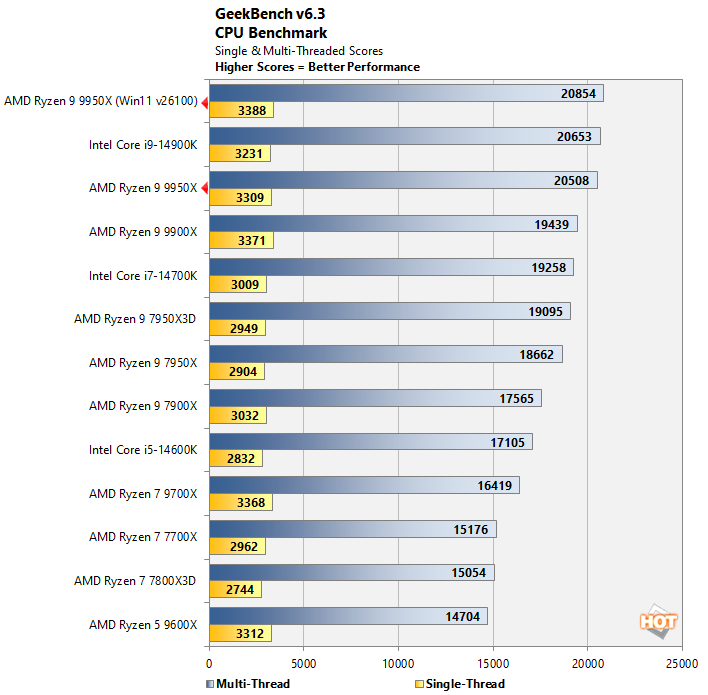
In Geekbench v6.3, we did indeed see slight improvements in both single- and multi-core performance. These bumps actually put our Ryzen 9 9950X just barely ahead of the Core i9-14900K, which AMD is surely happy to see. We feel we should stress that the gains are minimal, but they are definitely real.
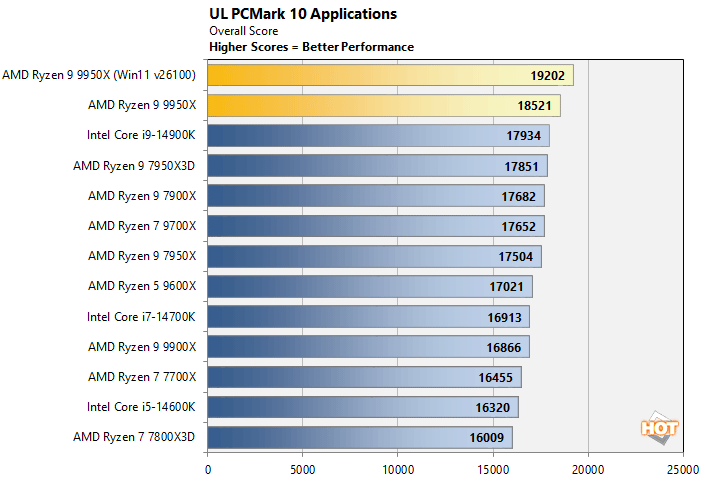
The PCMark Applications test, which makes use of Microsoft Office applications, shows a nice uptick in performance as well. The Ryzen 9 9950X was already the leader here, but using the latest Windows build with the specific Zen 5 updates helps the 9950X extend its lead.
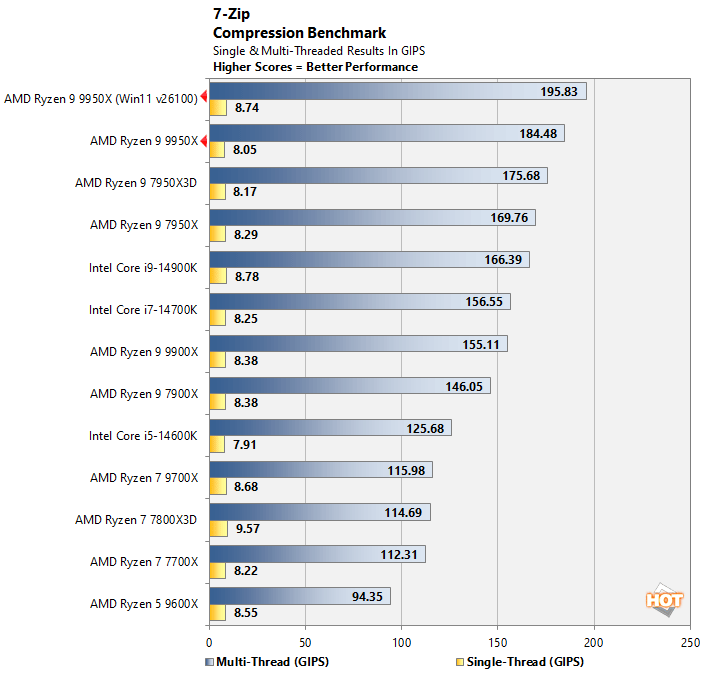
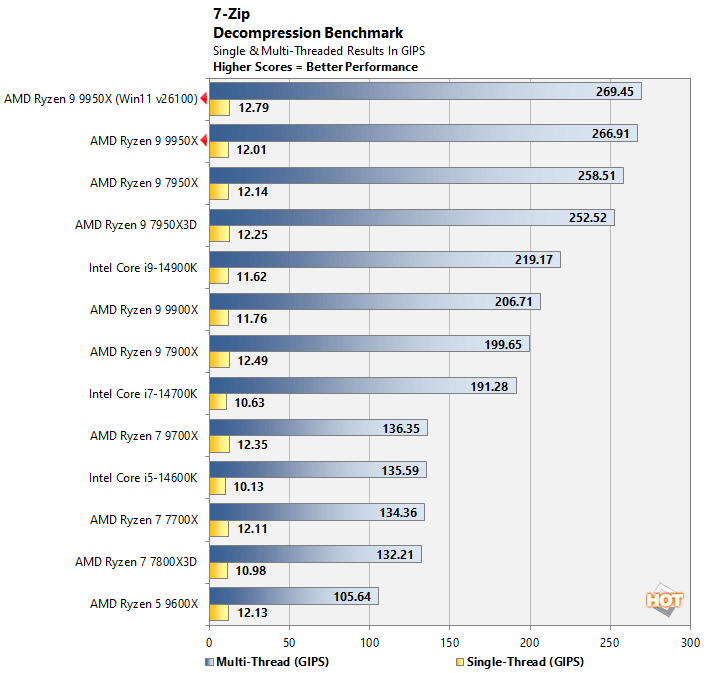
Both the compression and decompression tests using 7-Zip show a marginal improvement as well. Both the single- and multi-threaded result are improved here.
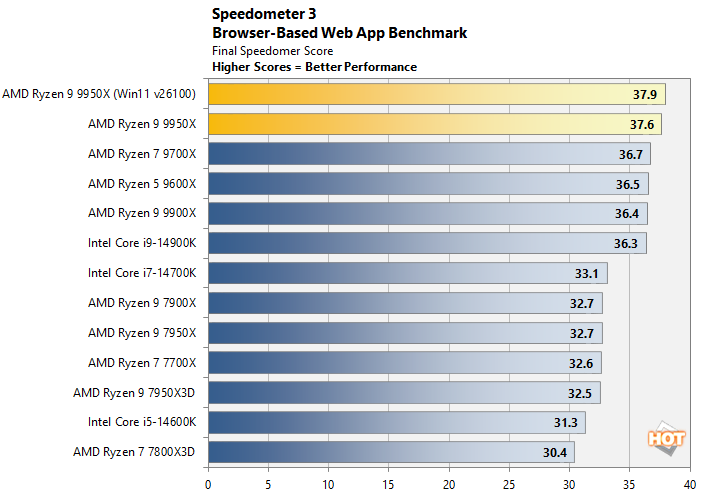
Using the latest Windows 11 build once again gave us a tiny nudge upward in the Speedometer 3 web application benchmark. The Ryzen 9 9950X was already our fastest CPU in this test, but whatever optimizations are present in the latest build of Windows carry it further ahead of everything else.
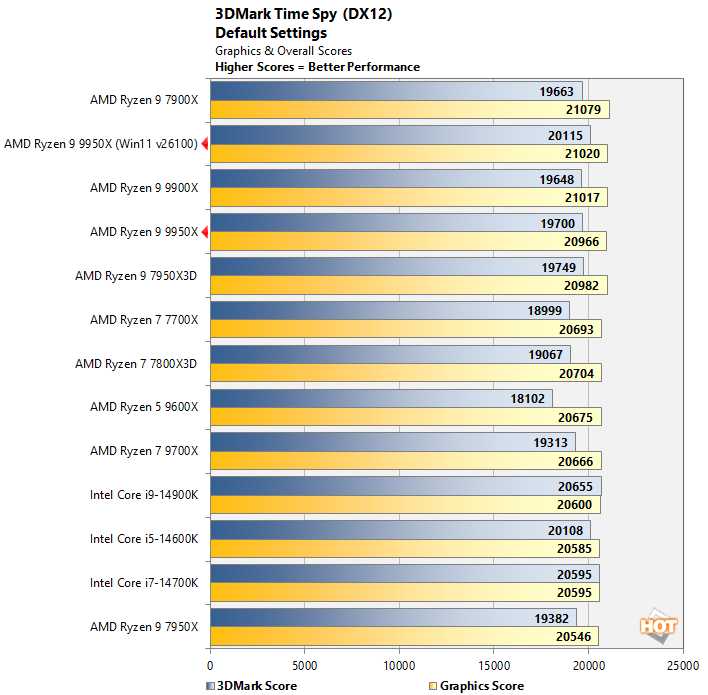
In 3DMark Time Spy, the picture is actually rosier than you think. While the graphics score basically didn't change—understandable considering we're using the same GPU—the overall 3DMark score improved a fair bit thanks to a significant uplift in the Physics portion of the benchmark.
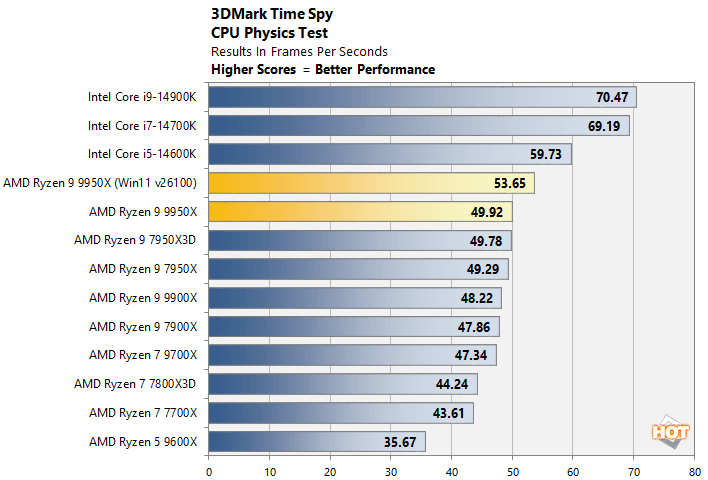
If we look specifically at the physics score, there's a sidnificant uplift with this Windows Insider build. This could point to real performance improvements in CPU-limited games that can make use of all those CPU cores.
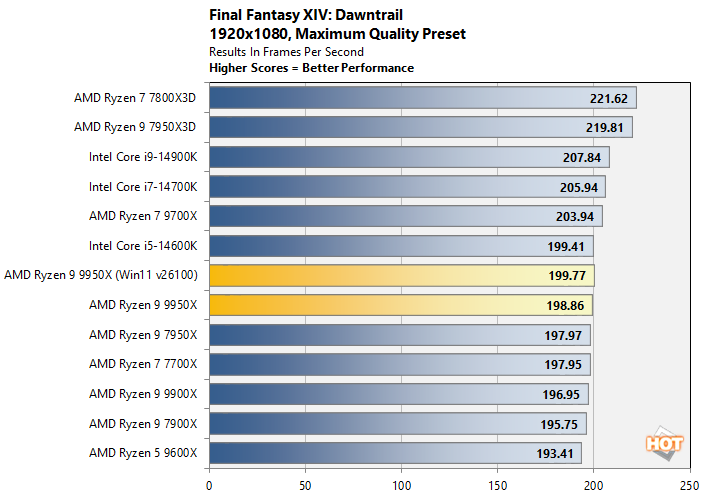
Finally, in the Final Fantasy XIV: Dawntrail benchmark, we saw basically no change in performance. Final Fantasy XIV is notoriously single-threaded, and the Dawntrail graphical update did little to change that, so it's no real surprise that this type of optimization didn't do much for this game. Results with F1 2024 and the Talos Principle II (the other games we used in our review) were essentially flat.
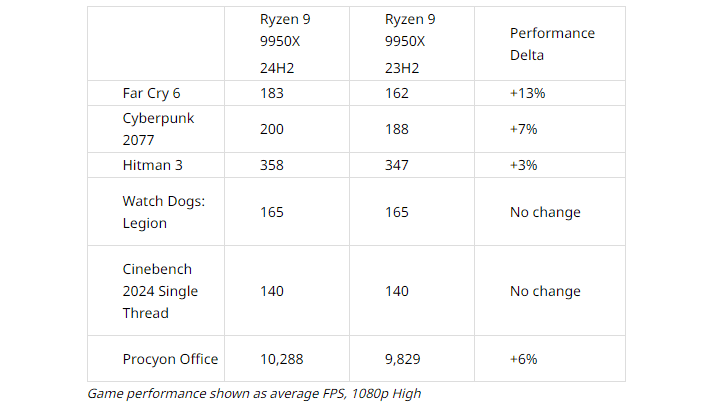
For its own part, AMD produced a chart of benchmark results comparing Windows 11 23H2 to the latest version 26100 that we tested. The company says it found performance uplifts as large as 13% in Far Cry 6, which is possible. The 7% gain in Cyberpunk 2077 and the 3% gain in Hitman 3 are more in line with what we just saw in our own testing, though.
AMD says that the new version of Windows 11 will also bring similar (if smaller) performance gains for its Zen 3 and Zen 4 processors, which is nice for those of us rocking Ryzen 5000 and Ryzen 7000 CPUs. Ultimately, though, the company probably should have been more forthcoming with the fact that its benchmark data was produced using a version of Windows that most people don't even have yet.

